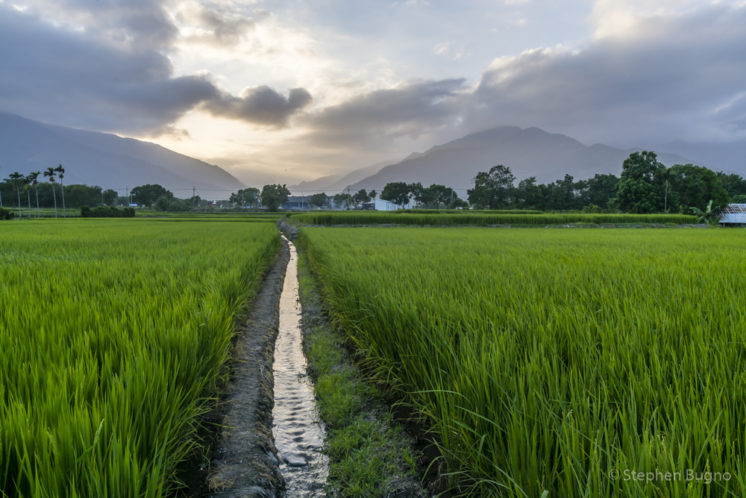Following mass violence at a tea plantation of its Kenyan subsidiary, Unilever refused to take responsibility. This case study illustrates how parent companies can distance themselves from subsidiaries to shield themselves from liability for human rights abuses occurring in their corporate group, thereby denying victims access to remedy.
 Photo: Stephen Bugno/Flickr
Photo: Stephen Bugno/FlickrIn December 2007, mass ethnic violence broke out in Kenya in response to the general election result. The violence reached the Unilever plantation in Kericho, “which has an estimated residential population of over 100,000, [representing] 11% of Unilever’s global workforce, the largest concentration of Unilever employees anywhere in the world”.[1]
The Unilever tea plantation was invaded by large groups of attackers, who targeted workers that were not local to the area. These workers had been brought in by Unilever to work on the plantation (together with their families). Hundreds of workers were attacked with clubs and machetes, many women were raped and seven murders took place.[2] Thousands of people fled the plantation to reach places of safety.
In 2015, Kenyan claimants brought a lawsuit against the UK parent company, Unilever plc, and its Kenyan subsidiary in the UK courts. The claimants filed against Unilever in London on the basis of the parent company’s duty of care for its subsidiary, arguing that the crisis management expertise upon which its Kenyan subsidiary relied came from Unilever plc. Furthermore, they argued that Unilever plc was responsible for ensuring that effective procedures were in place in its Kenyan subsidiary and that people were adequately trained on the ground. This was an argument in line with Unilever’s human rights responsibility under the international normative framework.
The claimants argued that the subsidiary had “failed to adequately assess, plan for and respond to the risk of violence because Unilever plc had failed to ensure adequate crisis management systems were in place”. [3] In particular, they claimed Unilever plc had “placed their workers in a position of serious risk because most were from tribes that are not indigenous to the area”;[4] and nothing was done to enhance the protection of residential areas, although measures had been taken to protect management housing and company assets. The claimants argued that, if a proper crisis management and preparedness plan been put in place, this tragedy would have been averted.
Unilever plc’s defence strategy relied primarily on questioning the UK as the proper jurisdiction to deal with the case, arguing that the claim should be heard in Kenya against its Kenyan subsidiary instead.[5] The UK courts, in preliminary proceedings on jurisdiction, accepted the claimants’ arguments to hear the claim in the UK, finding evidence that the victims would not get justice in Kenya; and that Unilever Plc had “assumed apparent control of the content and auditing”[6] of the relevant policies and safety procedures.
However, over the course of the proceedings, in which both the claimants and Unilever plc appealed against certain court decisions, the initial jurisdictional assessment was overturned.[7] Jurisdiction was declined on the basis that there was insufficient evidence that Unilever plc was actively involved with crisis management at its Kenyan subsidiary, and thus there was not a sufficient relationship with the UK for its courts to deal with the case.[8]
In its review of an earlier version of this case study,[9] Unilever highlighted the decision of the High Court that the violence at the Kenyan plantation could not have been foreseen and that it was reasonable for Unilever plc to rely on the Kenyan police to maintain law and order on the plantation of its subsidiary.[10] The victims have appealed against that decision, but this matter has not been further dealt with substantively since the Court of Appeal rejected jurisdiction over the case and, as a consequence, did not deal with the other points of appeal.
Irrespective of what precautionary measures could or could not have been expected to be taken by Unilever plc, the central aim of this case study is to question the virtue of the litigation strategy used by the company. Unilever’s strategy to distance itself from its subsidiary contrasts with its public commitments to the UNGPs, which include the responsibility to prevent human rights risks and address human rights impacts at subsidiaries.
Furthermore, the UNGPs foresee a role for companies to contribute or use their leverage to realise remedy for victims of human rights abuse related to their business operations. However, in this particular case, Unilever plc has done the contrary, and has so far blocked any prospect of access to remedy for the victims of rape and murder on the Unilever tea plantation in Kenya. It has done so by relying on the company’s corporate structure and legal separation from its subsidiary, in the knowledge that it would be impossible for the case to actually proceed in Kenya.[11]
[1] LeighDay, “Post-Election Violence on Unilever’s Kenyan Tea Estates,” Accessed October 21, 2019. https://www.leighday.co.uk/International/Corporate-accountability/Security-human-rights/Unilever-Kenya.
[2] LeighDay.
[3] LeighDay.
[4] LeighDay.
[5] AAA and others v. Unilever Plc and Unilever Tea Kenya Limited, 371 (England and Wales High Court, Queen’s Bench Division February 27, 2017).
[6] AAA and others v. Unilever Plc and Unilever Tea Kenya Limited, 371.
[7] Business & Human Rights Resource Centre. “Unilever Lawsuit (Re Ethnic Violence in Kenya).” Accessed March 17, 2020. https://www.business-humanrights.org/en/unilever-lawsuit-re-ethnic-violence-in-kenya
[8] LeighDay.; AAA and others v. Unilever PLC and Unilever Tea Kenya Limited, 1532 (England and Wales Court of Appeal, Civil Division July 4, 2018).
[9] Unilever, “RE: Review announcement case description Unilever”, April 28 2020
[10] AAA and others v. Unilever Plc and Unilever Tea Kenya Limited, 371 (England and Wales High Court, Queen’s Bench Division February 27, 2017).
[11] LeighDay.
